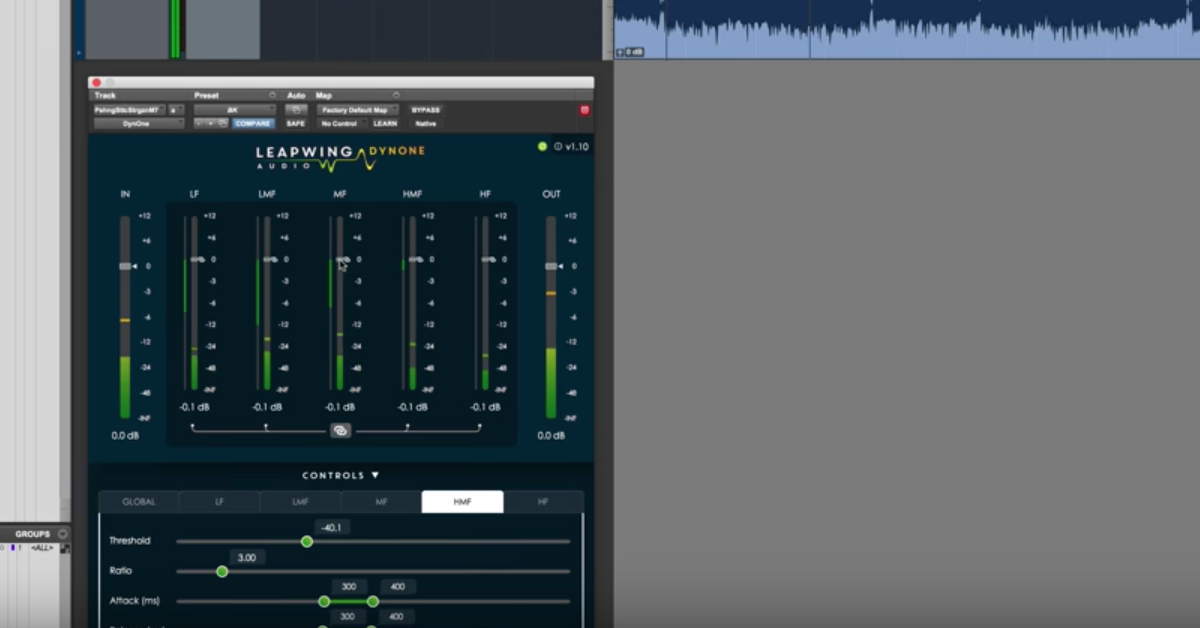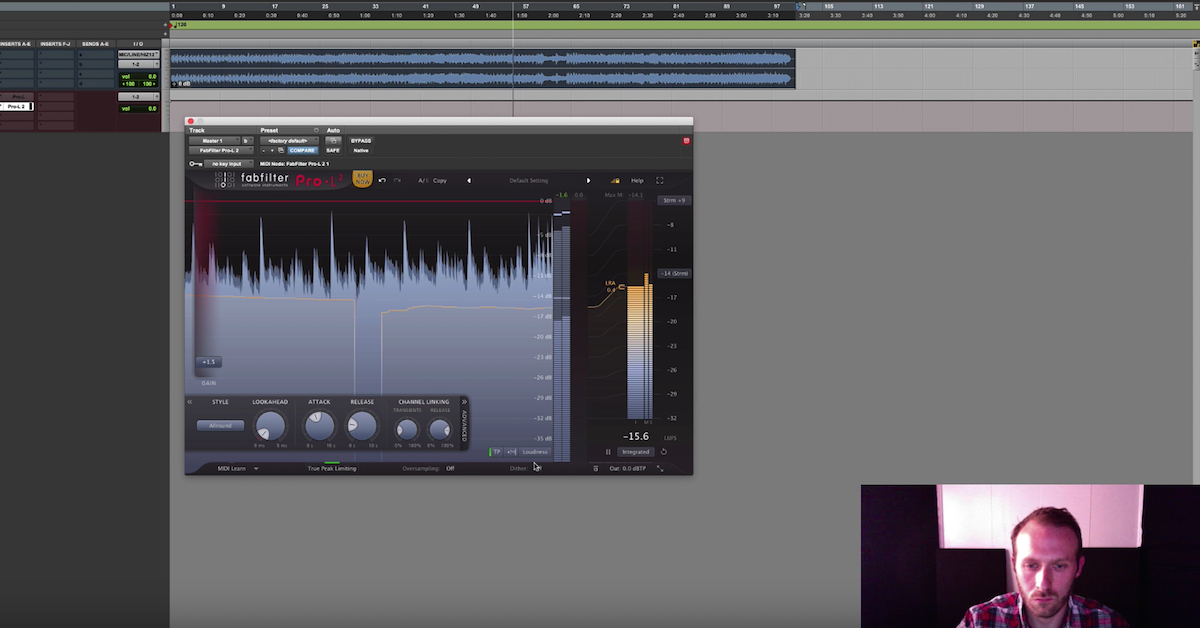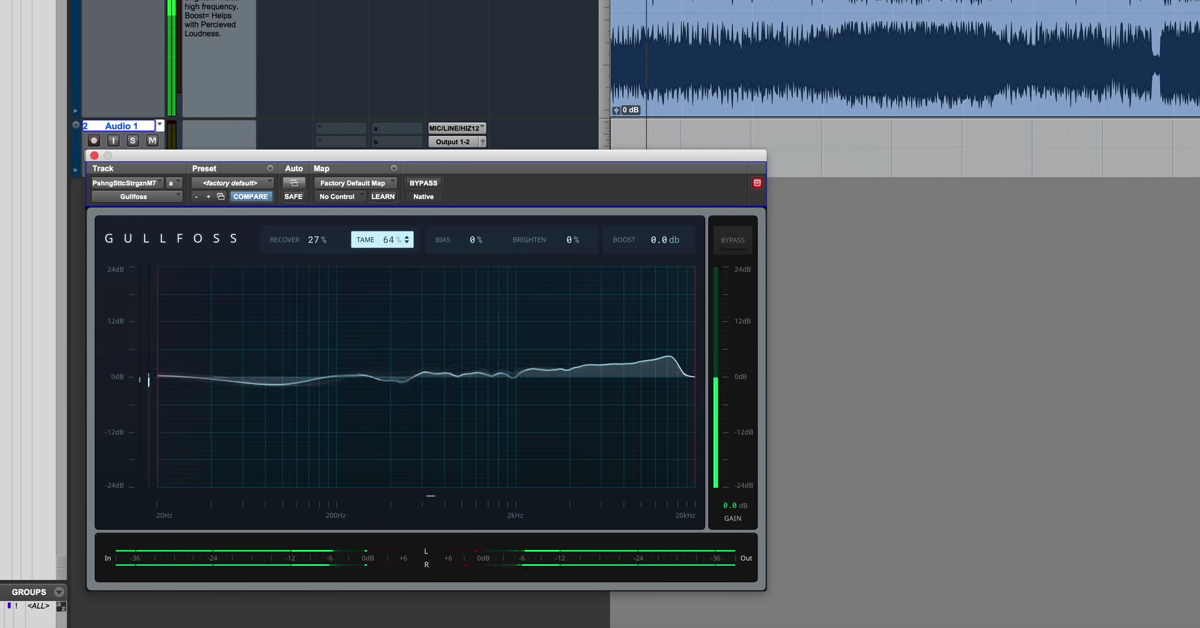Review: Elevate by Newfangled Audio
Article Content
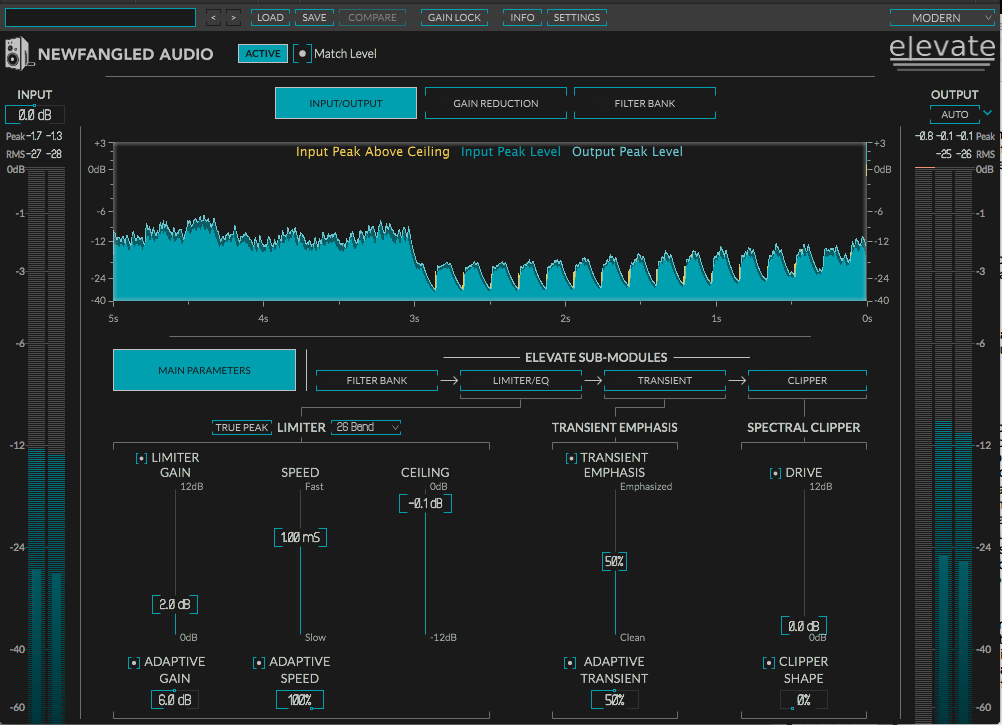
Elevate is billed as a “professional audio grade mastering limiter and audio maximizer designed to transparently increase the loudness of your audio signal while maintaining or improving the dynamic perception and tonal balance of your mix”.
At first glance, this bold statement seems loaded with contradictions. First, the use of the term “professional grade” seems somewhat hyperbolic and hard to believe, based on the price of just $139 for the bundle, which is significantly lower than comparable products. Second, the idea of increasing loudness while improving dynamic perception (which I assume to mean dynamic range) seems counterintuitive. However, given the association with Eventide and the reputation of the developer Dan Gillespie, Elevate deserves the benefit of the doubt.
Toward the beginning of the user manual there is an important note about loudness which states, “When audio is consistently too loud it can lead to listening fatigue for the user and a sub par experience”. This statement lies at the heart of the loudness debate that has been unfolding over the last several years. There clearly seems to be a consensus developing among engineers that the loudness wars need a truce, so that a more musical dynamic range can return to the mainstream. Of course challenges still remain with compression formats and dissemination methods having their own set of limitations. But it seems that overall musicality is winning the debate. For an overview on the basics of amplitude, read my recent article, “The Fundamentals of Amplitude and Loudness”.
So how does Elevate achieve the transparency of process it claims? It uses auditory filter banks that separate audio based on models of human perception and adaptive algorithms that recombine frequencies in a way that avoids unwanted audio artifacts.
The Sub-Modules
The signal path through Elevate makes its way through 4 sub-modules:
1. FILTER BANK SUB-MODULE PAGE
The process spilts the signal into a number of triangular filter banks “that resemble the critical bands in the human ear. You can reduce the number of bands but risk the introduction of artifacts at lower resolutions. The filter will output a number of audio streams which will be used by the adaptive algorithm for gain reduction. You can solo bands and add or subtract bands as desired. You can also change center frequencies, however the defaults have been set intentionally to mirror the critical bands mentioned earlier.
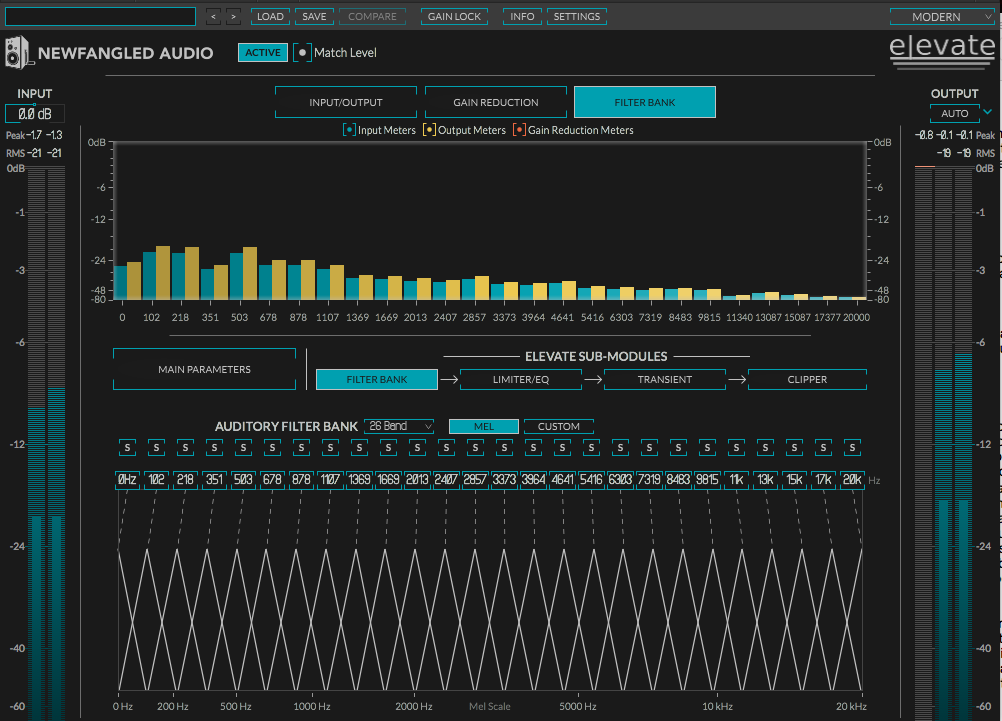
2. LIMITER/EQ SUB-MODULE PAGE
The Limiter/EQ section allows for gain adjustments on each band and provides visualization. You can solo bands, use the draw control to change several settings by dragging the cursor across the display.
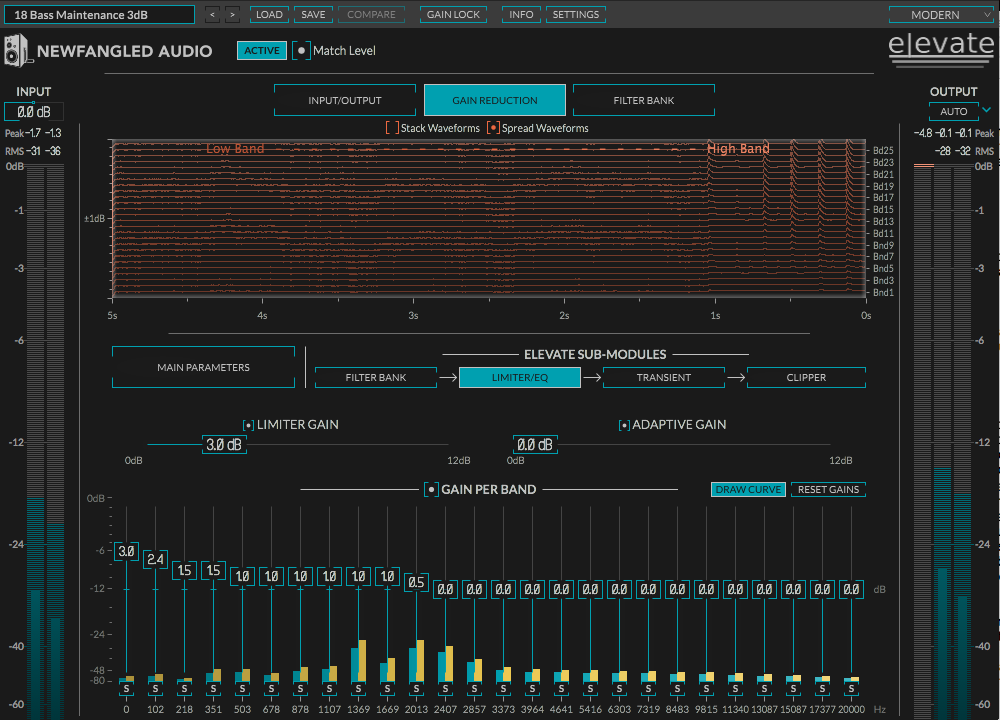
3. TRANSIENT SUB-MODULE PAGE
In the Transient section you can tweak the transient emphasis for each band. As with the Limiter section, this band-specific control allows you to pinpoint and adjust emphasis in particular instrument frequency ranges. Once again you can solo bands here as well.
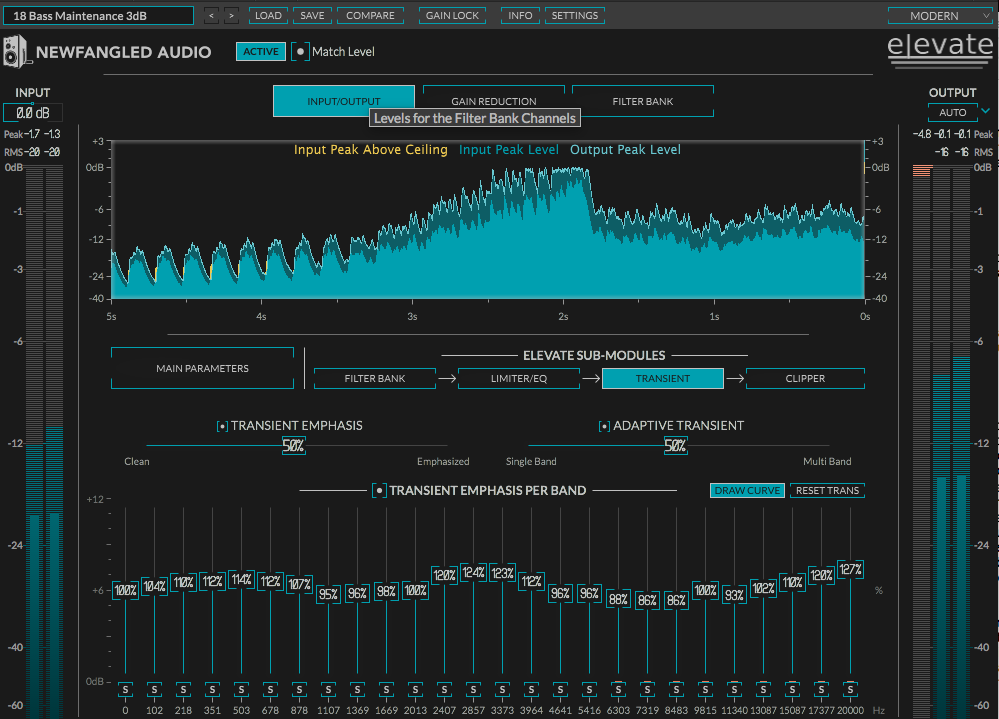
4. CLIPPER SUB-MODULE PAGE
Lastly, the Clipper section will clip fast transients that make it through the previous module and add up to 12 dB of distortion based gain. I found this section particularly satisfying and the interface intuitive.
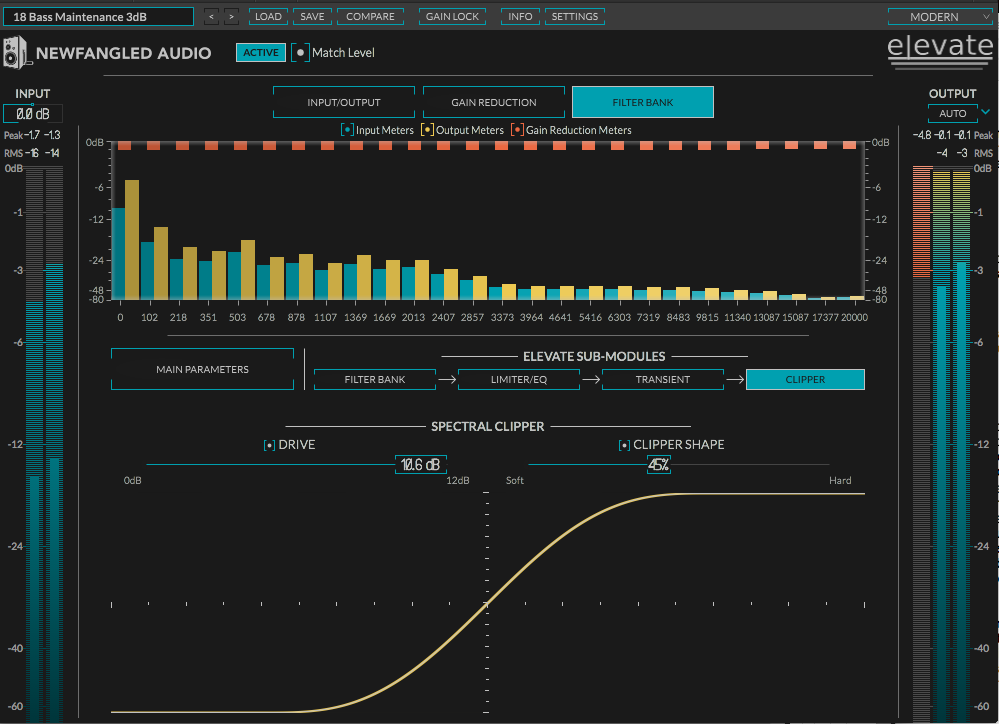
The underlying premise of Elevate is the splitting of a signal into frequency bands that are designed to mimic the critical bands of human perception*. From there, adaptive algorithms operate on these bands giving the user extremely precise control that far surpasses that of garden variety multiband compressors or transient shapers.
Video demos available on the product page.
Conclusion
At the end of the user manual is a chapter called “About Newfangled Audio”. This might be something you’d find at the beginning rather than the end of a manual. And I’ll be the first to admit I rarely ever reach the end of a manual, which is typically nothing more than troubleshooting tips and disclaimers. Such is not case with Elevate. Instead, the developer defends the use the of the term new fangled which is defined as objectionably new. The text goes on to explain that a “backward looking” approach to development while understandably valid, does not appreciate that fact that the vintage gear and processes that are being emulated were using new ideas in their own time. This implies that we should be creating new things and ideas based on our available technology and a 21st Century aesthetic, and resist the urge toward fetishistic regurgitation of past paradigms and sonic sensibilities. I find this to be a refreshing and unabashed assault on the notion that audio sounded better in the past than it can in the future.
Elevate produces results that are anything but objectionable. The processing is indeed transparent, effective, and magical in its ability to crystallize spectral definition, balance and volume intensity, while preserving a dynamic range that retains musicality in a world still in recovery from the onslaught of the squashed, lifeless sound masses that have pummeled listeners for the last several years. Professional grade? Okay. But for $139 the answer is: Buy it now!
Note:
*The concept of critical bands of human perception was first introduced by the physicist, Harvey Fletcher (also known for his research that resulted in the famed Fletcher-Muson Equal Loudness Contours) “The concept of critical bands…describes the frequency bandwidth of the “auditory filter” created by the cochlea, the sense organ of hearing within the inner ear. Roughly, the critical band is the band of audio frequencies within which a second tone will interfere with the perception of the first tone by auditory masking”. (source)
Check out my other articles, reviews and interviews
Follow me on Twitter / Instagram / YouTube



